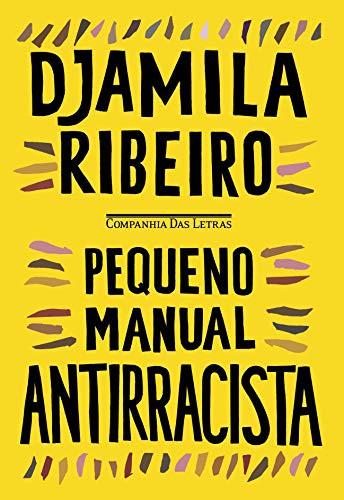Djamila Taís Ribeiro dos Santos (born 1980) is a Brazilian Black feminist philosopher and journalist. She graduated in political philosophy from the Federal University of São Paulo, where she also earned a master's degree on the work of Simone de Beauvoir and Judith Butler. Ribeiro is a collaborating editor of weekly magazine CartaCapital, as well as a columnist for CartaCapital and Folha de S.Paulo.In May 2016, she was appointed São Paulo's vice-secretary for Human Rights and Citizenship Affairs, thereby joining the Fernando Haddad administration.She prefaced the Brazilian Portuguese edition of Women, Race and Class by Black feminist philosopher Angela Davis. Ribeiro and Davis have collaborated on a number of occasions.Ribeiro also works as a blogger and online activist. In 2018, she appeared as a representative of Brazil's civil society at Harvard and MIT's joint annual Brazil Conference.In her A Short Anti-racist Handbook (Port. Pequeno manual antirracista), inspired on the book How to Be an Antiracist by Ibram X. Kendi, Ribeiro calls upon white people to take responsibility and change attitudes which result in privileges and oppression. Being a follower of Candomblé, Ribeiro has written about how traditional women healers in Afro-descendant communities came to be portrayed as witches by Western …
Djamila Ribeiro
Author details
- Born:
- Aug. 1, 1980
Djamila Taís Ribeiro dos Santos (born 1980) is a Brazilian Black feminist philosopher and journalist. She graduated in political philosophy from the Federal University of São Paulo, where she also earned a master's degree on the work of Simone de Beauvoir and Judith Butler. Ribeiro is a collaborating editor of weekly magazine CartaCapital, as well as a columnist for CartaCapital and Folha de S.Paulo.In May 2016, she was appointed São Paulo's vice-secretary for Human Rights and Citizenship Affairs, thereby joining the Fernando Haddad administration.She prefaced the Brazilian Portuguese edition of Women, Race and Class by Black feminist philosopher Angela Davis. Ribeiro and Davis have collaborated on a number of occasions.Ribeiro also works as a blogger and online activist. In 2018, she appeared as a representative of Brazil's civil society at Harvard and MIT's joint annual Brazil Conference.In her A Short Anti-racist Handbook (Port. Pequeno manual antirracista), inspired on the book How to Be an Antiracist by Ibram X. Kendi, Ribeiro calls upon white people to take responsibility and change attitudes which result in privileges and oppression. Being a follower of Candomblé, Ribeiro has written about how traditional women healers in Afro-descendant communities came to be portrayed as witches by Western civilisation.In July 2020, Ribeiro decided to report Twitter to Brazil's Public Prosecutor's Office on the grounds that Twitter "economically exploits racism and misogyny" and "profits from attacks on defenceless Black women".
